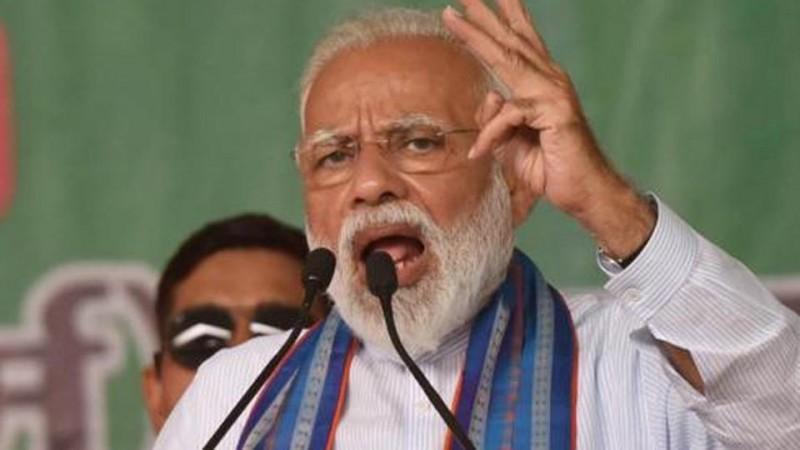
Prime Minister Narendra Modi ruffled quite a few feathers after he made a controversial comment during an interview. He said that he had suggested rain and clouds could prevent Pakistan from detecting their radar while the Indian Air force flew to Balakot to conduct a surgical strike on February 26.
According to the transcript of the interview, PM Modi had said, "The weather was not good on the day of airstrikes. There was a thought that crept in the minds of the experts that day of the strike should be changed. However, I suggested that the clouds can actually help our planes escape the radars."
He said this during an interview with News Nation TV channel. Modi had also said, "The weather suddenly turned bad, there were clouds... heavy rain. There was a doubt about whether we can go in the clouds. During a review (of the Balakot plan), by and large the opinion of experts was - what if we change the date. I had two issues in mind. One was secrecy... second, I said I am not someone who knows the science. I said there is so much cloud and rain. There is a benefit. I have a raw wisdom, the clouds can benefit us too. We can escape the radar. Everyone was confused. Ultimately I said there are clouds... let's proceed."
Modi was severely criticised for his "raw wisdom" and many questioned how he could risk sending the country's security forces up in the air when the visibility was low and things could have easily taken a turn for the worse.
Left Leader Sitaram Yechury was one of the first people to publicly criticize him. He took to Twitter to voice out his anger. He wrote, "National security is not something to be trifled with. Such an irresponsible statement from Modi is highly damaging. Somebody like this can't remain India's PM."
Former diplomat KC Singh was also not too pleased with Modi's comments. He accused Modi of politicising the military and said that the Air Chief would have known that the radars aren't affected or influenced by clouds and that the Pakistan radar did pick up the Indian planes.
This statement triggered a debate on how those with expert knowledge were overruled during such important missions.
NDTV reports that the clouds did affect the visibility for the IAF flights on the mission and did nothing to help avoid detection by the radars. In fact, the clouds did not allow the IAF to release six Crystal Maze missiles which would give them footage of the area and help with shooting down the targets. In addition to this, damage caused could not be seen due to the clouds.















